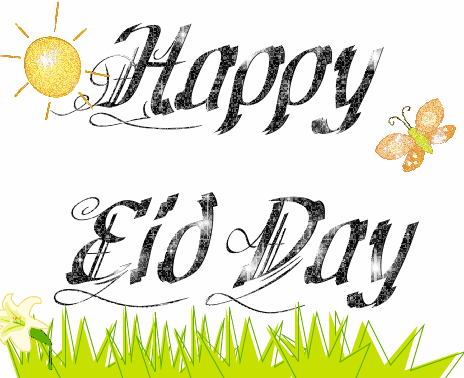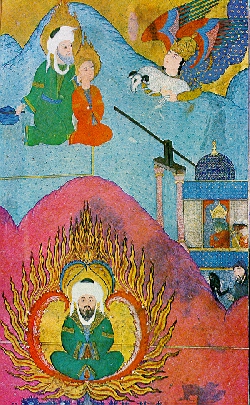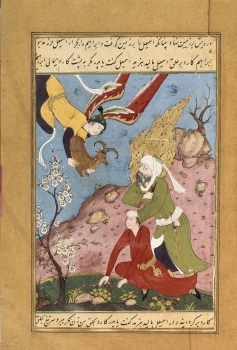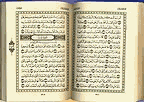
 Eid al Adha for the 21st Century
Eid al Adha for the 21st Century
Eid al Adha (Festival of Sacrifice) is an annual festival celebrated by Muslims in honour of Ibrahim’s willingness to sacrifice his son ‘Ishmael’ to Allah
The Quran reports that Ibrahim had a dream. In his dream Allah asked him to sacrifice his first son Ishmael. Ibrahim is reported to have told Ishmael about the dream, of which he consented. And so, despite his love for Ishmael, Ibrahim set out to fulfil Allah’s request. Ibrahim tied up his son’s hands and legs that he was not perturbed by his pain and restlessness. Ibrahim then blindfolded himself and carrying the knife proceeded with the sacrifice in honour of God.

 When the prophet removed his blindfold he saw a Ram lay slain, while Ishmael had miraculously survived. Ibrahim trembled lest Allah rejected his sacrifice. “O Ibrahim! You have indeed fulfilled the vision“, said a soothing voice, “we reward the virtuous. This great sacrifice was indeed a test of your honour for Allah among later generations “
When the prophet removed his blindfold he saw a Ram lay slain, while Ishmael had miraculously survived. Ibrahim trembled lest Allah rejected his sacrifice. “O Ibrahim! You have indeed fulfilled the vision“, said a soothing voice, “we reward the virtuous. This great sacrifice was indeed a test of your honour for Allah among later generations “
Henceforth, Eid al Adha is a celebration that commemorates this ‘great sacrifice’ every year, and like in the dream, traditionally involves the killing of many lambs. Nevertheless, how could we interpret the great sacrifice in light of today’s challenges in the 21st century?
We can certainly agree that the story emphasises two key spiritual qualities the first being ‘devotion‘, as Ibrahim demonstrates his commitment to God in his willingness to sacrifice his own son at God’s request. This represents his devotion to God. Secondly, and equally important is the emphasises on ‘mercy‘, the mercy of God as Ishmael’s life is gracefully spared, while the lamb lay slain.
There is no doubt that we maintain a high level of devotion every year at Ramadan before the great sacrifice. Our fasting during this period demonstrates our devotion to God as we attempt to abstain from many of the things that we so often take for granted. However, what do we do to represent ‘mercy’? There is no doubt that we practice kindness at Ramadan by offering gifts and sharing our food and we do strive to forgive those who may have practised unkindness to us. Sadly however, in some parts of the world we commemorate Eid-al-Adha by permitting the slaughter of thousands of young lambs, and by feasting on their meat, despite this being contrary to mercifulness. It does not appear that the Prophet Muhammad (PBUH) would have encouraged this:
In the Muwatta Muhammad’s (pbuh) Umar explains to one Man:
”Every time you get hungry you go out and buy meat? Right? In other words, every time you desire meat, you go out and buy it?” He said, ”Yeah”, and Umar said, ”It would be better for you to roll up your tummy a little bit so that other people can eat”
This is of particular importance in today’s world as we know that the resources it takes in rearing this mass amount of animals would suffice to feed up to 70% more people than what does when converted into animal flesh. Moreover, should we not in turn demonstrate our mercy by sparing the lamb of Allah, in the same way that Allah spared the son of Ibrahim? Of course:
“It is not their meat nor their blood, that reaches Allah; it is your piety that reaches Him. […] ” Qu’ran 22:37
Let us remember that neither Allah nor Ibrahim sacrificed the lamb with the intention of eating its meat or initiating an annual feast of meat and slaughter:
“..the only sacrifice which God requires from man is the Surrender of his will and purpose“ Al Islam
Nothing more nothing less. Now true we express devotion, dedication, discipline, endurance and so forth through our annual fast, but sadly our rearing, slaughter and/or consumption of the lambs (and animals in general) shows devotion only to ones stomach or desire, which manifests anything but mercy. It would be far more rewarding to abstain from the rearing, slaughter and consumption of all animals altogether.
We should strive to make the connection that in every lamb is the son of Ibrahim, the spirit of Ishmael, and that on principle alone should attach the same level of preparedness to kill ones own child before the slaughter or consume lamb (or any of allah’s creatures). As it was not until Ibrahim demonstrated his preparedness to slaughter his own son that the lamb became worth of his slaughter. Let us understand the difference, that the slaughtering that we carry our today is purely symbolic and economic, and contrary to Ibrahim’s slaughter expresses no love for Allah for Allah is the one whose gift was mercy.
The Prophet Muhammad, was a strong advocate for animals and sensitive to their suffering:
“Whoever is kind to the other creatures is also kind to himself.” and “Fear God in regards to these animals who cannot speak their will.” and “Allah is only merciful with those who show mercy to others.“~Prophet Muhammad – PBUH and “Don’t make your stomach a graveyard of innocent birds and animals.” Prophet Muhammad said to Hazrat Ali
 We will find many more examples if we look deep into our Hadiths collection or have a close eye in our sacred Quran we have the tools, we have the religion to make great choices, we have alternatives but we don’t have the compassion yet and that’s up to us. For more information about Animal Welfare in Islam please see here. Anila Muhammad asks whether Muslims should reconsider animal slaughter at Eid? (Read more).
We will find many more examples if we look deep into our Hadiths collection or have a close eye in our sacred Quran we have the tools, we have the religion to make great choices, we have alternatives but we don’t have the compassion yet and that’s up to us. For more information about Animal Welfare in Islam please see here. Anila Muhammad asks whether Muslims should reconsider animal slaughter at Eid? (Read more).


Thank you for your sharing. I am worried that I lack creative ideas. It is your article that makes me full of hope. Thank you. But, I have a question, can you help me?
Can you be more specific about the content of your article? After reading it, I still have some doubts. Hope you can help me.
I don’t think the title of your article matches the content lol. Just kidding, mainly because I had some doubts after reading the article.
Your point of view caught my eye and was very interesting. Thanks. I have a question for you.